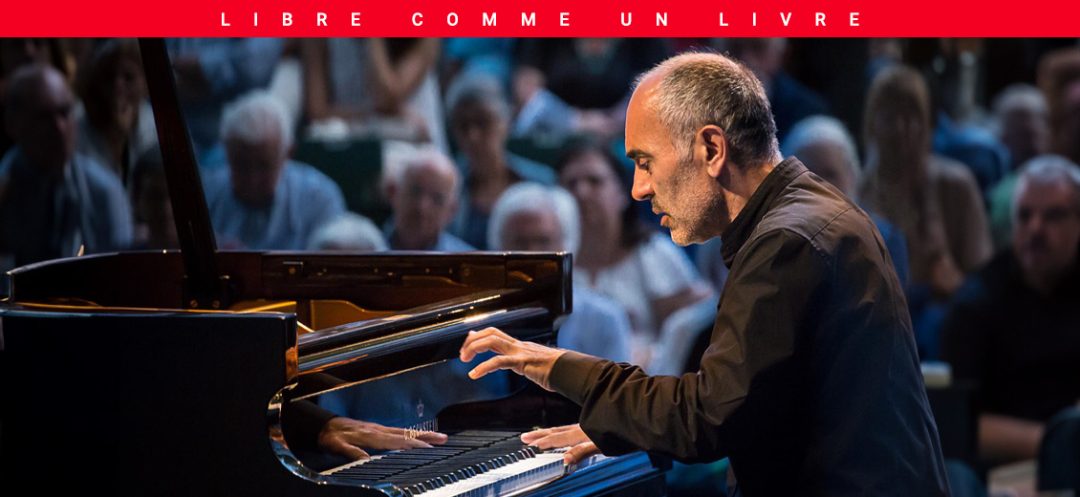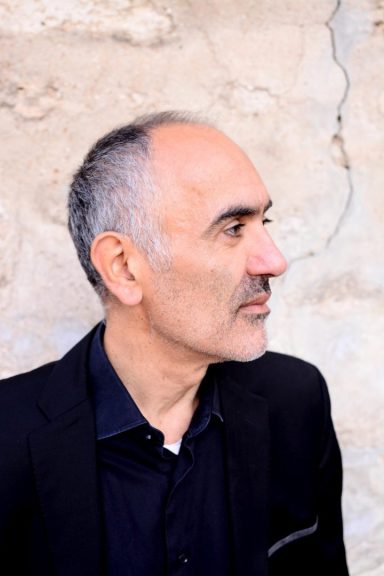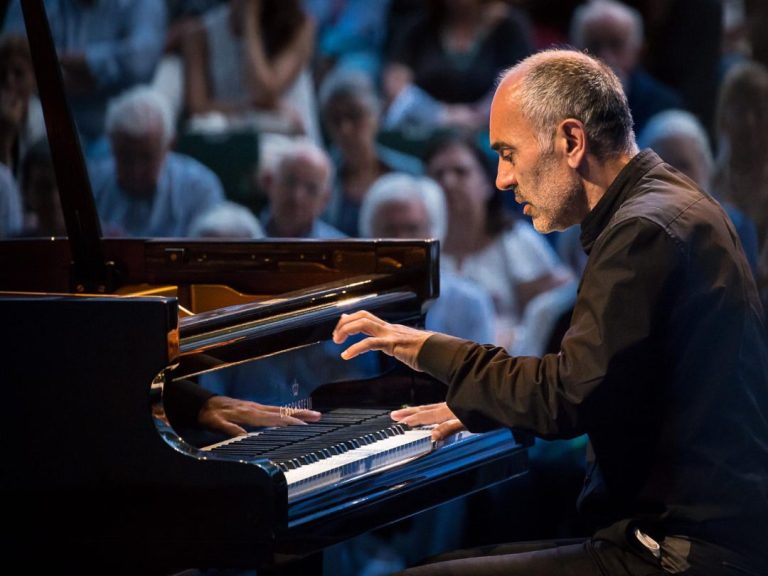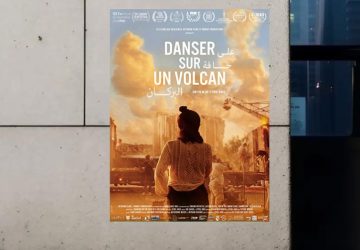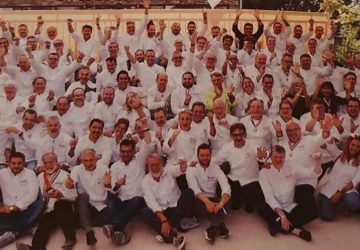Listen to the article
Voyage Enchanteur, a concert by Abdel Rahman el Bacha will be held at the Institut du Monde Arabe. This event will enable the Tripoli Lebanon Heritage Association, which organizes it, to fund the Tripoli Focus Days on November 23 and 24 at the IMA, in celebration of Tripoli being named the “Arab Cultural Capital.” An exclusive interview with Abdel Rahman el Bacha for This Is Beirut follows.
How did your vocation develop, growing up with the great composer and conductor Toufic el Bacha and the golden voice of Wadad?
Music is a profound passion that defines my life’s purpose. My mother sang while I was in her womb, and I believe I absorbed vibrations that enhanced my genetic heritage. From the age of two, I attended my father’s rehearsals. I was initially captivated by the violin, especially by violinist Abboud Abdel Aal. However, my interest in the violin waned when it failed to respond to my musical intentions, often leading me to strike it. By the age of six, I discovered the piano and its resilience. According to my teacher Zvart Sarkissian, who trained me from the age of eight until sixteen, I possessed “unusual gifts for the piano compared to other students.” This allowed me to progress rapidly, to the point where, as a teenager, I was unanimously admitted to Professor Pierre Sancan’s class at the Paris Conservatory, even without preliminary preparation. My father was not supportive of me pursuing an international music career. Success in the music industry isn’t guaranteed by winning awards at the Paris Conservatory. As a native of Lebanon, not a traditional “producer of pianists” like France, Russia, or America, I had to prove myself. I won the Queen Elizabeth prize in ’78, shortly after graduating from the conservatory, marking a significant first. No musician from our Arab and Lebanese region had previously achieved such a feat. Raymond Eddé immediately sent me his congratulations. My international career was thus launched.
Critics and music lovers say they “feel Chopin when you play him on the piano.” You also perform pieces by Bach and Beethoven. What’s your secret?
Playing the piano involves technical skill, physical endurance, emotional investment, and spiritual depth. Without the emotional dimension, music would be nothing more than a physical performance, especially when it comes to challenging pieces.The spiritual scope of music captivates me. I particularly refer to Bach and Beethoven, the mainstays of my repertoire. Without understanding their spiritual messages or contemplating human conditions, metaphysics, and philosophy, it’s impossible to convey the essence of their musical legacy. Performing Beethoven is akin to voicing a protest against injustice, a major plight of our world. Chopin, widely revered among pianists, even if some avoid playing his works, is the poet of music, the piano’s prince. His life, marked by the injustice of his nation being subdued by foreign powers and his subsequent exile, resonates deeply with me.
You have recorded the complete works for piano by Chopin and all 32 sonatas by Beethoven. Why focus on Chopin’s works and French songs on piano for the Voyage Enchanteur concert? What will the program include?
The first part of the program will showcase a selection of my compositions. I have organized my own piano works into five collections, and during the concert hosted by the Tripoli Lebanon Heritage Association, three will be performed: Preludes and Songs, The World of Children, and Three Oriental Pieces. Preludes and Songs comprises seven pieces, including Andalusian preludes, oriental preludes, and funeral preludes. Additionally, A Lebanese Song, so named because it captures the popular mood of our country, will be performed. I will also play a romance, Marie or the Death of a Child, dedicated to a drowned young girl I knew. The World of Children holds a special place in my heart. I myself have six children, whom I’ve guided and supported. The Three Oriental Pieces are commissioned works. The first and third were requested by my father and ultimately adapted for piano, although initially intended as orchestral compositions. The middle piece was commissioned by the legendary Mohammad Abdel Wahab, who gifted me his compositions. I adapted these into Variations on an Egyptian tune, drawn from his song Eh Gara ya Albi, which he greatly admired. The Three Oriental Pieces reflect my cultural heritage. Firstly, Ritual Dance depicts an imagined ambiance and Bedouin music of the desert, an intriguing paradox since these modes are uncommon for the piano. Moreover, Bacchus captures the exuberance that life can inspire. The second part of the concert is primarily devoted to French culture. Chopin, who was half-French and lived in Paris, composed his Third Sonata during the year of his father’s death; it spans about half an hour. As a lover of great French songs, I have crafted pianistic versions to express gratitude to Paris for hosting the Institut du Monde Arabe. These adaptations, derived from my efforts, resonate like classical pieces with universal themes, featuring works by Barbara, Charles Trenet, Edith Piaf, Jacques Brel, and Lucienne Boyer. My piano transcriptions not only echo the lyrics but also involve a reinterpretation of the harmony.

Joumana Chahal Timery, the concert instigator
How did you come up with the idea to found the Tripoli Lebanon Heritage Association?
This idea emerged after the 2006 war. It is a French association established in Paris under the 1901 law. Tripoli represents layers of civilizations, starting with the Phoenicians, followed by the Greeks, Seljuks, Fatimids, Arab conquests, Crusaders, Mamluks, and Ottomans—each leaving indelible marks in stone over 4,000 years of history. Its modern heritage is equally significant, as the city boasts the international fair of Oscar Niemeyer, recently designated a UNESCO World Heritage Site, recognized as one of the masterpieces of the Middle East. Although the Emirates feature spectacular constructions, none bear the signature of Oscar Niemeyer, regarded as the foremost modern architect. We have conducted international symposia with support from the General Council of Île-de-France. The recommendations collected serve as our roadmap: to promote heritage through a comprehensive inventory; to emphasize awareness through the Heritage Sharing program, encompassing educational, cultural, and touristic initiatives; and to leverage events like Abdel Rahman el Bacha’s concert to highlight these efforts.
How do you carry out this work of resistance?
We could have supported Tripoli by supplying bags of wheat and rice. Instead, we chose to promote employment, tourism, and knowledge while respecting the dignity of the people. Tripoli has an international fair, a remarkable port, an airport, and an oil purification station, yet these assets are largely unknown, as there have been concerted efforts to conceal its wealth and subjugate its residents. We established a professional training center in Tripoli that teaches tourism and art professions. We developed an electronic map allowing one to explore Tripoli either from their couch or by wandering through its caravanserais, churches, mosques, the terminal station of the Orient Express, its citadels, and its bathhouses. Opting to organize a concert with an international artist like Abdel Rahman el Bacha was to draw a parallel between a great man and a great city.


